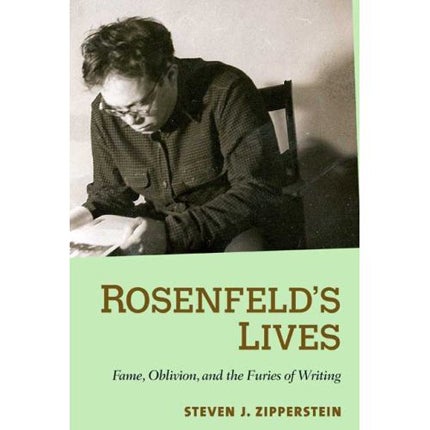Rosenfeld's Lives, By Steven Zipperstein
Dynamic days of a literary hero

How many books should an author write? There is no simple answer. Alas, though, that the Chicago-born New York intellectual Isaac Rosenfeld died at 38 in 1956. His one novel, Passage from Home (1946), was so envied by his close friend Saul Bellow – together they wrote a brilliant Yiddish parody of Eliot's "Prufrock" – that he himself wrote industriously, leaving Rosenfeld in his shadow.
Steven Zipperstein's brisk study draws upon Bellow's unpublished novel about Rosenfeld – and confirms the wild domestic life which inspired Wallace Markfield's To an Early Grave. Irving Howe was so stirred by Rosenfeld's book that he wrote 2000 words about it, which began his career as a critic.
The novel recounts how, after his mother died, his upbringing largely devolved upon aunts for whom he felt a near-incestuous affinity. In claustrophobic rooms, such longings vied with a passion for reading.
As hungry for books as for women (though Zipperstein hints at some homosexuality), Rosenfeld tore through life. His marriage splintered into solitary squalor in a succession of Greenwich Village rooms: he died at his desk. The descent was perhaps sped by misplaced enthusiasm for Wilhelm Reich's "orgone box". He had, however, captained a barge for some time – there reciting Shakespeare and Kierkegaard.
People liked him. High on life, given to belly laughs, he was always surprising. That spirit informs such stories as "The Misfortunes of the Flapjacks", about a bizarre baseball team, and "King Solomon", a regal twist upon Bellow and women.
His essays are corkers, whether about the Jewish food in "Adam and Eve on Delancey Street" or – not mentioned by Zipperstein – a demolition of Henry Green. Dead before Fiddler on the Roof opened, Rosenfeld keenly appreciated Sholom Aleichem's stories. He always quoted dextrously: "Irwin Shaw's fiction, as Faulkner says of Popeye's face, has the 'depthless, vicious quality of stamped tin'." Rosenfeld's Lives is a goldmine.
Join our commenting forum
Join thought-provoking conversations, follow other Independent readers and see their replies
Comments
Bookmark popover
Removed from bookmarks